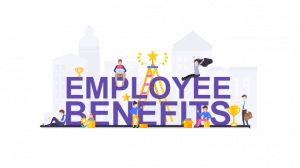Do you remember that time when you were so sure about that job application, examination result, birthday gift, relationship, travel plans, contract, or deal and it just did not go as planned? You felt like a failure. You felt like you wouldn’t want to do it again. Ow! You actually did quit at some point. That is okay. What if I tell you that there is a way to recover quickly or prevent being hit hard by such disappointments? Yes! I meant that; A way to bounce back quicker than expected and not be disappointed from not realizing your expectation!
In this article I bring to you a hack, managing expectations, which plays a significant role in having a sound mental and emotional health for not only your career but everything you do in life.
The first step to take in managing your expectations is to come to terms with the fact that nothing is guaranteed in life; life is a game of probability. For example, by studying all your lecture slides, you don’t pass your examinations automatically. Success is not guaranteed because the examination questions may come from outside the lecture slides, the examiner may be biased against your thought flow or your memory may fail you. In effect, studying those lecture slides only gives you a better chance of passing. Success in life is dependent on both internal factors (what you can and cannot do as an individual – strengths and weaknesses ) and external factors (things outside your direct control that can aid or hamper the achievement of your objectives-opportunities and threats). Putting it simply, life is not solely about your efforts. Understanding and applying this to your daily life will help shape your expectations of people and happenings.
INTERNAL FACTORS
Be slow to trust the words of others
See human beings as human beings and not supreme beings. They may fail you at any instance and so inasmuch as you have a lot of expectations based on what they tell you , match it up with a bar of possible failure and disappointment. If you feel the need to trust the words of someone, it is better to understand the risks involved just so you are able to successfully deal with the disappointments that may occur in the process. Relatedly, an advice in financial planning is not to spend money that isn’t in your hands irrespective of how assured you are about getting it. The same principle applies here. When you trust people and take them for their word, you are most likely going to raise the bar of expectations for them. The danger with this is that even if they do their possible best and it does not reach the bar, you become less appreciative of their efforts. This may mar your relationship with that person. Instead of blaming others for disappointing you, see it as a shared responsibility; that you should have managed your expectations. This puts you in the position of being able to move on quickly after a phase of disappointment.
Have plans B, C, D, E… Z
“Do not place all your eggs in one basket”. For this reason, you must always have backup plans.
Sounds like a cliché right? We may often underestimate the power of this statement yet it plays a significant role in the expectation management process. When you accept fully that success goes beyond your 100% efforts and that humans can disappoint you, you will forge backup plans as an insurance cover. These backup plans may be your penultimate goal but then they still feed into your mission or your final goal. The question to ask yourself is, “What would I do if I fail to win with my plan A?” Forecast a possible failure and find a solution to that using backup plan(s). This is effective risk management and by extension, expectation management.
Prepare to be hurt
Whether you have managed your expectations or not, there will be an element of hurt when you face rejection or disappointment because you would have invested time and resources in a bid to achieve that particular goal. The difference here, though, is that with your expectations managed, the negative effect of the rejection or disappointment is relatively less and you are able to bounce back relatively easier. This also plays a role in normalizing rejections. In the latter part of 2019 moving into 2020 alone, I faced 4 rejections and just a month ago, I faced another. I have come to understand that rejections are part of the success story and make them even sweeter. I’m now always prepared to be hurt so much that now I don’t get hurt when I face disappointments or rejections. I just keep moving because I’ve normalized it.
Extend the projected timeline
One way to manage your expectations is to always extend the time window within which you are supposed to get a response from an application process or people. This will save you from a lot of pressure and anxiety in the case of a delay in response. To extend the projected timeline, multiply the projected period with a factor of 1.5 or 2. This helps you to be more patient. Also within this period, you have to continue chasing information on progress at well-defined intervals in order to stay on track. I have personally done this time and again and can tell you it works.
EXTERNAL FACTORS
There could be someone better
Whenever you apply to a job, contest etc. you will face competitors who could be better than you-threats. You never know what your competitors have up their sleeves. Oftentimes, we focus so much on our efforts and fail to understand that our competitors may also be at their best game. While we put in our 100% smart efforts, we must also note that this may be happening on the other side as well. Beyond having this acknowledgement as a source of motivation to put in your possible best, it tunes your mind to the fact that you may put in your all yet may not win; and that is okay. Try again when you get rejected.
Stay curious and chase information
The more information you get, the higher your chances of success and this is an opportunity you should take advantage of. Here is a personal experience. In September 2016, I applied for a job with a multinational company with my best résumé and cover letter. I was so expectant of a positive result yet I was never called for an interview; such disappointment. Instead of drowning in my emotions, I decided to dig for more information. My friend who was picked eventually shared with me that the company had a referral policy and to get the chance for an interview in the company, an employee should endorse you. Why? Because as an employee, you are as good as whoever you endorse. I obviously did not have this information and it cost me dearly. Information is a great resource. It helps you to focus your efforts and also helps you to track progress. You could take the contact details of the members of the panel after your interview because you get the chance to follow up and get first hand information on the recruitment process. Having enough information puts your emotions in check by directing your expectations. It also helps you gain some understanding of the external factors that are outside your control.
There is also the issue of assumptions. Assumptions can ruin you if you do not validate them. How do you validate assumptions? By using information. Whenever you assume, go the extra mile to gather information on your assumption. This will help you shape and manage your expectations.
This list may not be exhaustive. Based on my experience though, these hacks do work, and I hope that the next time you decide to participate in a competition, a job application or set out to do anything in life, you reflect on these points and manage your expectations around the outcome.
Also, if you find yourself at the other side of the table, where you are in charge of the opportunities, help manage the expectations of contestants/applicants by maintaining adequate communications, providing relevant information in the process and sticking to timelines. “Do unto others, what you want others to do unto you”
Life’s complicated right? Unfortunately that’s what we are presented with and by acknowledging these, you will accept that failures and disappointments may occur even when you put in 100% smart effort. An important thing to do while managing your expectations is premising the measurement of your success on new experiences you encountered while preparing to achieve that single goal instead of measuring your success only against the fact that you were able to achieve what you pursued. John C. Maxwell (2018) reinforces this in his book Developing the Leader within you 2.0 with the advice to take yourself through a growth journey other than a marathon of achieving goals. The former is a continuous process. Where you see no development in any endeavor you undertake, it means you didn’t put in much work to control the factors within your domain.
If you found this insightful, connect with us on Twitter, Instagram and Facebook: @productivityopt and on LinkedIn: Productivity Optimizer.
My name is Joel Kojo Abaka Anaman. A Pharmacist by Profession, a Salesman by Occupation, a Career Coach by Passion and a Techpreneur by Vision. It is also my vision to reach 1 million students, new graduates and young people in active jobs with this initiative. Join me on this journey as we debunk some myths and activate some life hacks to propel us towards our career goals. Guess what?! This is not reserved for 9-5 workers; Entrepreneurs will also benefit massively from this.











